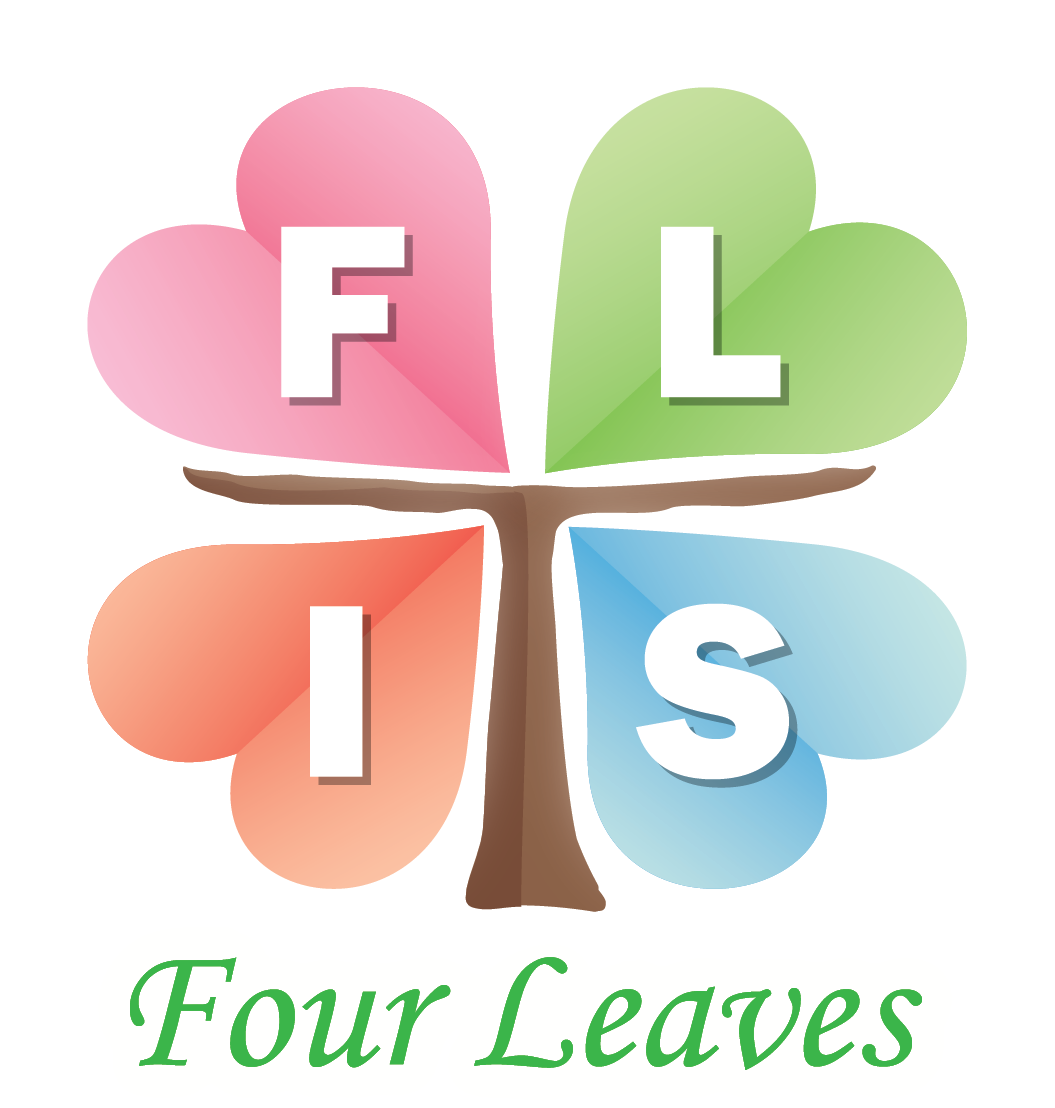Small Classes, Big Impact: Why Personal Attention Makes All the Difference
Four Leaves International School Tokyo kids work in small groups for the best learning outcome. Every child, no matter what age they are, deserves to be seen and heard, that is why small classrooms are essential. Imagine working with 40 students in one class and most of the children will be left out. That is why at Four Leaves International School Tokyo we offer a space where each child’s voice, interests, and learning path are honored.
Four Leaves International School Tokyoでは、子どもたちは少人数のグループで学び、最良の学習成果を目指します。年齢に関係なく、すべての子どもたちが「見られ、聞かれる」ことが大切だと私たちは考えています。そのため、少人数のクラスは不可欠です。もし40人の子どもたちがひとつのクラスで学ぶとしたら、多くの子どもが取り残されてしまうことでしょう。だからこそ、私たちは一人ひとりの声や興味、学びの道筋が大切にされる空間を提供しています。
The Power of Being Known
Small classes allow teachers to build strong relationships with every student. In a 2020 review of early childhood education practices, the National Institute for Early Education Research (NIEER) emphasized that positive teacher-child relationships are among the most consistent predictors of children’s academic and emotional success (Barnett et al., 2020). With fewer students in the classroom, teachers can truly touch the heart of a child and know their joys, fears, favorite animals, and the way they learn. This strong connection between teachers and students creates mutual trust which makes children feel safe and connected. They are more likely to participate, take creative risks, and grow in their independence.
「知られていること」の力
少人数クラスでは、教師がすべての子どもと強い関係を築くことができます。2020年の幼児教育実践に関するレビューにおいて、全米幼児教育研究所(NIEER)は、教師と子どもの良好な関係が、子どもの学業的および情緒的な成功を予測する最も一貫した要因の一つであると強調しています(Barnett et al., 2020)。教室内の生徒数が少ないことで、教師は一人ひとりの子どもの心に触れ、その喜びや不安、好きな動物、学び方の好みまで知ることができます。このような教師と子どもとの強い絆は、相互の信頼を生み出し、子どもたちは安心とつながりを感じることができるのです。その結果、彼らはより積極的に参加し、創造的な挑戦をし、自立心を育んでいきます。
Tailored Learning for Every Child
Four Leaves International School Tokyo, no child gets left out because of the small sized classrooms. Our educators can tailor instruction and activities to each learner’s developmental stage and interests. Research consistently shows that differentiated instruction improves student engagement and outcomes (Tomlinson, 2014), especially in early years when learning styles and paces can vary widely. Whether a child needs more support, more difficult assignments, small classes give teachers the flexibility and time to meet those needs.
すべての子どもに合わせた学び
Four Leaves International School Tokyo では、少人数制のクラスによって、どの子どもも取り残されることはありません。私たちの教師は、一人ひとりの発達段階や興味に合わせて、指導やアクティビティを調整することができます。特に学びのスタイルやスピードが大きく異なる幼少期において、個別化された指導が子どもの関心と学習成果を高めることは、多くの研究で一貫して示されています(Tomlinson, 2014)。サポートが必要な子どもにも、より高度な課題を求める子どもにも、少人数クラスは教師に柔軟性と時間の余裕を与え、それぞれのニーズに応えることを可能にします。
Calmer Classrooms, Happier Children
Children learn best in calm, emotionally safe environments. Small class sizes reduce classroom noise and overstimulation, especially at preschools, allowing for more focused learning and smoother transitions between activities. According to the OECD’s Starting Strong report on early childhood education, classroom environment — including teacher-child ratios and group size — significantly impacts children’s ability to regulate emotions and behavior (OECD, 2017).
落ち着いた教室、幸せな子どもたち
子どもたちは、穏やかで感情的に安心できる環境でこそ最もよく学びます。特に幼児期において、少人数のクラスは騒音や刺激を減らし、集中した学びやスムーズな活動の切り替えを可能にします。OECDの『スターティング・ストロング』幼児教育に関する報告書によると、教室環境――たとえば教師と子どもの比率やグループの規模――は、子どもたちの感情や行動の自己調整能力に大きな影響を与えるとされています(OECD, 2017)。
Picture of our small classroom Size at Four Leaves International School Tokyo
Four Leaves International School Tokyo の少人数クラスの様子
Stronger Friendships and Social Skills
In smaller groups, no children get left out and build meaningful peer relationships. Social learning, learning with and from peers is a critical part of early childhood development (Vygotsky, 1978). Children not only learn from the lessons, but from their peers and learn to effectively socialize with each other. These experiences lay the foundation for essential life skills: empathy, patience, communication, and resilience.
より強い友情と社会性の育成
少人数のグループでは、子どもたちが取り残されることなく、意味のある友だち関係を築くことができます。仲間と一緒に学び合う「社会的学習」は、幼児期の発達において非常に重要な要素です(Vygotsky, 1978)。子どもたちは授業だけでなく、仲間からも学び合い、お互いに効果的に関わる方法を身につけていきます。こうした経験は、共感力、忍耐力、コミュニケーション力、そしてレジリエンスといった、人生に欠かせない力の土台となります。
Parents as Partners
One of the hidden benefits of small class sizes is the stronger connection between teachers and families. At Four Leaves International School Tokyo, teachers give families personalized updates every semester, share observations regularly, and partner with parents to support each child’s growth. This connection helps children feel supported and understood across all aspects of their lives.
保護者はパートナー
少人数クラスの隠れた利点の一つは、教師とご家庭とのつながりがより深まることです。Four Leaves International School Tokyo では、教師が毎学期ごとに保護者へ個別の成長報告を行い、日々の気づきを共有しながら、保護者と協力してお子さま一人ひとりの成長を支えています。この強いつながりによって、子どもたちは生活のあらゆる場面で「支えられている」「理解されている」と感じることができるのです。
The Long-Term Advantage
While small class size alone is not a silver bullet, it is a powerful ingredient in high-quality early education. Studies have found that children in smaller classes in their early years show stronger performance in later grades, particularly in language and math (Chetty et al., 2011). But more importantly, children develop the habits of mind and heart that last a lifetime: confidence, cooperation, and compassion.
長期的なメリット
少人数クラスだけで全てが解決するわけではありませんが、質の高い幼児教育を実現するための非常に重要な要素であることは確かです。研究によると、幼少期に少人数クラスで学んだ子どもたちは、後の学年で特に言語や数学において高い学力を示す傾向があります(Chetty ら, 2011)。しかし、それ以上に大切なのは、子どもたちが一生を通して役立つ「こころ」と「考える力」の習慣を身につけることです。つまり、自信、協力する力、そして思いやりの心です。
In Closing
At Four Leaves International School Tokyo, we value small classroom sizes, and it is necessary for the best learning outcome for a child. It is because early education is not just about lessons, it is time to build identity, relationships and most importantly, love of learning.
最後に
Four Leaves International School Tokyo では、少人数制のクラスを大切にしており、それは子どもたちにとって最良の学びを実現するために欠かせない要素だと考えています。なぜなら、幼児教育は単なる「授業」ではなく、子どもたちが自分自身のアイデンティティや人間関係を築き、そして何より「学ぶことを好きになる心」を育む大切な時間だからです。
References
Barnett, W. S., Friedman-Krauss, A. H., Weisenfeld, G. G., Horowitz, M., Kasmin, R., & Squires, J. H. (2020). The State of Preschool 2019. National Institute for Early Education Research (NIEER).
Chetty, R., Friedman, J. N., Hilger, N., Saez, E., Schanzenbach, D. W., & Yagan, D. (2011). How Does Your Kindergarten Classroom Affect Your Earnings? Evidence from Project STAR. Quarterly Journal of Economics, 126(4), 1593–1660.
OECD. (2017). Starting Strong 2017: Key OECD Indicators on Early Childhood Education and Care. OECD Publishing.
Tomlinson, C. A. (2014). The Differentiated Classroom: Responding to the Needs of All Learners (2nd ed.). ASCD.
Vygotsky, L. S. (1978). Mind in Society: The Development of Higher Psychological Processes. Harvard University Press.


